The Chaplin Revue
This 1959 film was released when Charlie Chaplin was in exile in Switzerland because of the HUAC hearings in the States, where Chaplin was suspected of being a Communist. Deciding to revitalise his dwindling star power -- his last three films: Limelight, A King in New York and Monsieur Verdoux had not been as popular as his silent films -- Chaplin decided to revisit some of the shorts from his early career.
As an anthology of some of his earliest films, two from 1918 and one from 1923, The Chaplin Revue comprises A Dog's Life, Shoulder Arms and The Pilgrim with Chaplin adding an introduction to each film, new music and, in the case of Shoulder Arms, some new material (source footage from the First World War) to contextualise the comedy.
All three feature several of the same actors: Charlie Chaplin, Edna Purviance (who appeared in 33 of Chaplin's films), his brother, Sydney Chaplin and Henry Bergman. All of these actors worked closely with Chaplin in the first few years of his career and had a close bond with the writer/director/star which shows it the films.
A Dog's Life
Released in 1918, this features the Tramp desperate for work and every attempt is thwarted by other, bigger and stronger men who were equally desperate for employment. When he comes across Scraps, a canine kindred spirit who is being picked on by four other dogs, the Tramp rescues her and they immediately formed a close bond with the dog described in an intertitle as "a pedigree mongrel".
Wanting to find somewhere for sustenance and entertainment, they try go to a free house where Edna Purviance is singing but they aren't allowed in because of the 'no dogs' policy. Hiding Scraps in his trousers, the Tramp is allowed in but, just as the Bar Singer is being fired for failing to perform when being hassled by clients, Scraps is discovered and both she and the Tramp are thrown out.
Whilst this was going on, a group of thieves stole someone's wallet which is thick with cash and, because the police are on their tail, decide to bury it in the very same place where the Tramp had been sleeping rough. Taking Scraps back to his 'home', he falls asleep using the dog as a pillow but Scraps soon becomes restless and digs at the loose soil and finds the wallet. This proves to be the solution to a problem shared by Scraps, the Tramp and the Bar Singer who, predictably, find happiness together.
Shoulder Arms
This was an extremely brave move by Chaplin who decided to make a comedy about the First World War to be released in October 1918 whilst the war in Europe was still raging. It shows the terrors and horrors of trench warfare, with the New Recruit, played by Chaplin, sleeping in a dugout that is so full of water that his lower bunk is completely submerged and he tries to sleep with a funnel in his mouth.
More by luck than judgement, the New Recruit ends up in a German trench where he captures 13 soldiers and becomes a hero, celebrated for his ability to infiltrate the enemy and for courage in the face of danger. Rather than being employed in his previous role as a Private on The Front Line, he is despatched into enemy territory dressed as a tree where he manages to knock out several German soldiers.
Because he is such an asset to the Allies, the Germans are hot on his tail and when he seeks refuge in a semi-destroyed French house, the Germans capture him and the Kaiser himself is brought to see their latest prisoner.
Not exactly in typical Chaplin style, some quick thinking sees him take the Kaiser prisoner and drive him back to the American line where the New Recruit is celebrated as a hero and the war ends quickly and painlessly with the him also getting the girl. However, a last minute reveal suitably redresses the balance as it shows the New Recruit waking up in his bed from the most fantastic dream.
The Pilgrim
This 1923 short film starts Chaplin as an escaped convict who disguises himself as a preacher in order to escape capture but is quickly taken under the wing of two lovebirds who wish to get married quickly. Temporarily avoiding carrying out matrimonial duties, he escapes on the train to a small town of Devil's Gulch where he is mistaken as the new pastor who has been expected for some time.
Taken in by a young woman and her mother, he is called upon to preside over a service but is slightly freaked out when he counts the people in the choir and realises that there are, just as with a jury, 12 people. He doesn't know exactly what he's doing but delivers a sermon on David and Goliath that goes down reasonably well with most members of the congregation, especially a young boy who enjoyed the more violent aspects.
His blissful existence is disrupted by another escaped convict who recognises his old cellmate and breaks into the house to steal money from the family who have been saving up for the daughter's wedding. When someone notices the familiarity between the man on the Wanted poster and the pastor, they put two and two together and naturally assume that he's the thief.
After recovering the money, he is recognised as an honest man so, rather than sending it back to jail, the local sheriff takes him to the Mexican border which he can cross and live as a free man or return to the US where he will be imprisoned.
The Disc
Extra Features
There are two discs in this collection and on the first, there is an introduction by David Robinson and the disc also contains the original versions of A Dog's Life and Shoulder Arms so you can see the difference between the original films and the new versions that Chaplin changed.
In addition to a photo gallery, the second disc contains the short films The Pilgrim, Sunnyside, A Day's Pleasure, The Idle Class and Pay Day. These are all terrific movies that have been shown on Sky Movies when they did a Chaplin week but, as far as I know, have never been released on DVD before. They all (with the exception of The Pilgrim) feature of the Tramp, a variety of terrific set pieces and wonderful slapstick humour by Chaplin. The one with any real social commentary is The Idle Class in which Chaplin goes for the upper class with both barrels, showing them to be spoilt, lazy and selfish. All of these are well worth watching as they show how Chaplin refined his most famous creation before embarking on feature films.
The Picture
All three films look remarkably good for their age and I don't know whether they were slightly remastered before being re-released as one feature in 1959. Whatever the reason, there are surprisingly little amounts of grain, scratches and the various other detritus you would expect from films made in 1918 and 1923.
Chaplin's use of stock footage from the First World War in Shoulder Arms is a touch of genius that makes a comedy all the more risqué and amusing when you can see starkly the real horrors of war against those that were recreated for the short film.
The Sound
As it should be, the only soundtrack is Dolby Digital 2.0 mono which is given very little to do given the lack of dialogue but presents the scored music (all of it terrific) extremely well and, when Chaplin speaks to introduce each segment, his voice comes across very clearly and he enunciates very well which helps when it comes to presenting the only dialogue in the film.
Final Thoughts
This version of The Chaplin Revue is a fine release which illustrates what a tremendous filmmaker Chaplin was when making short films and before he built his own studio in order to make feature films with complete artistic independence. The addition of A Dog's Life and Shoulder Arms in their original format is extremely welcome, as is the selection of four other Chaplin shorts. All in all, this is a terrific package which neatly complements the two features released by mk2 on the same day: City Lights and The Circus, all of which you should seriously consider adding to your collection.
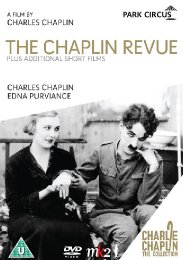
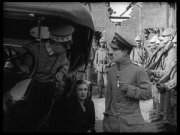
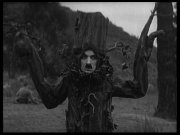
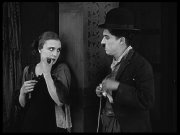
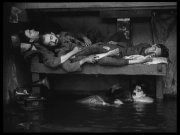
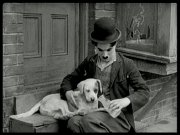
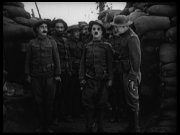
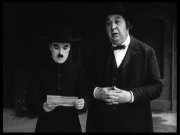
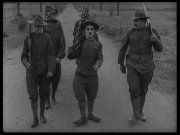
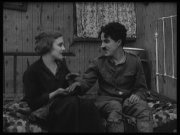
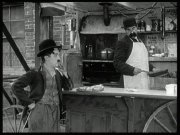
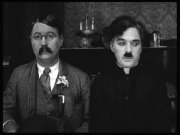
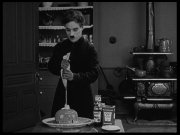
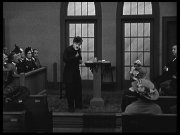
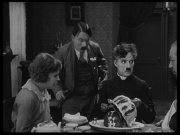






































Your Opinions and Comments
Be the first to post a comment!